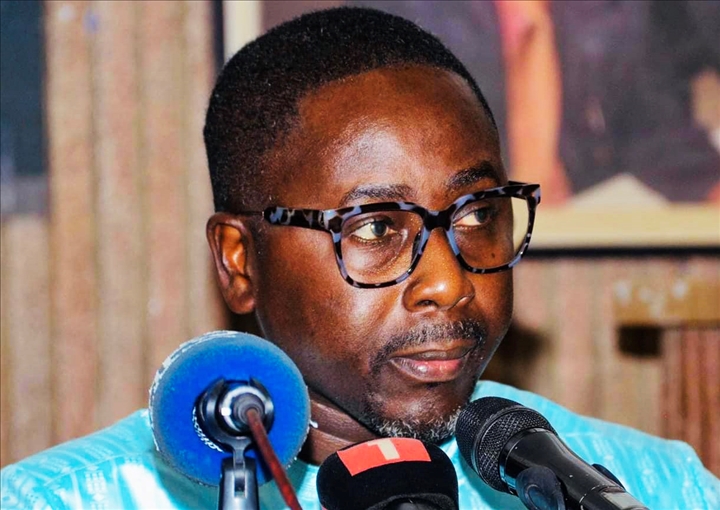Gambiaj.com – (DAKAR, Senegal) – Staff at the Senegalese public broadcaster, Radio and Television (RTS), have expressed their dissatisfaction over the suspension of certain privileges, leading Pape Alé Niang, the newly appointed General Director, to provide clarifications on the recent measures.
In a note he shared with the Gambia Journal, Niang explained that upon taking office, he engaged relevant RTS services to optimize resources and rationalize expenses. This led to the immediate suspension of 253 telephone lines as part of broader measures affecting the use of vehicles, fuel, and communication services.

Addressing concerns about staff remuneration, Niang noted that salaries for April and May 2024 were paid according to a company agreement signed by his predecessor on March 29, 2024. He highlighted that full implementation of this agreement would impose a significant financial burden on RTS, with an annual impact of 1.8 billion CFA Francs and a 1.35 billion CFA Francs impact for the current year.
The salary agreement is linked to a decree (No. 2024-837) signed on March 27, 2024, by former President Macky Sall, intended to provide financial advantages to RTS. However, Niang stated that he had to suspend the decree’s application until its terms of payment were established by the competent authorities. “No budgetary coverage has been guaranteed to support this financial impact, hence my decision to suspend the company agreement,” Niang explained.
In response, the RTS delegates’ college converged on a general assembly for all RTS personnel on Tuesday, July 2, 2024, at 3 PM at the Triangle Sud. The assembly discussed industrual actions to face the crisis at RTS, particularly the general management’s unpopular measures, including salary cuts, contractual terminations, suspension of the enterprise agreement, reduction of performance bonuses to 100,000 francs, and suspension of the common fund, among other issues.
Despite the unrest, Niang emphasized his commitment to taking full responsibility for these necessary rationalization measures. He acknowledged that these decisions might lead to further discontent but assured that they are crucial for the long-term sustainability of RTS. “I will continue to ensure the agreement’s application once its sustainability is guaranteed,” he said.
Niang also addressed concerns about RTS’s content and programs, reassuring that efforts are underway to align RTS with citizens’ expectations by promoting pluralistic content grounded in principles of freedom and responsibility.
As RTS navigates these challenging times, Niang’s leadership focuses on ensuring financial prudence and enhancing the organization’s service to the public.










